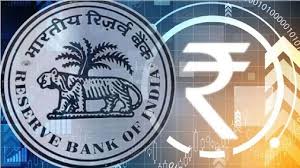
According to reports quoting top government official sources, India's official digital currency is expected to be released by the beginning of 2023. The Indian official cryptocurrency will function similarly to other commercially accessible digital currencies, with the exception that it will be backed by a sovereign-backed facility.
The Indian government's decision to develop its own cryptocurrency was announced in last week's budget speech by Finance Minister Nirmala Sitharaman, who stated that the 'digital rupee,' supported by the country's central bank, the Reserve Bank of India (RBI), would be introduced soon.
According to rumors citing government sources, the RBI would issue official digital currency that will be numbered in units, comparable to the paper currency's unique number.
"The digital rupee's units would be included in the currency in circulation. It wouldn't be all that different from fiat money. In a way, it would be a government-mandated electronic wallet, as it would be more like an electronic form of fiat currency," according to one of the reports.
According to sources, the RBI has announced that the digital rupee will be ready by the end of the next fiscal year.
Unlike private enterprises' existing mobile wallet systems, the RBI's digital rupee blockchain will be able to track all transactions.
People already send money to a private company, which stores it on their behalf and pays a merchant when a transaction is made using electronic wallets provided by private companies, according to the source.
"In the event of a digital rupee, instead of keeping a note, you'll have a digital currency in your phone that's registered with the central bank and can be transferred to any business from there. It is completely backed by the government," according to sources quoted in the reports.
Money transmitted to e-wallets produced by private companies carries the private company's credit risk as well as fees and charges set by the private companies for performing monetary transactions.
"Instead of carrying this wallet, I will carry money on the phone," the reports said.
In her Budget address for 2022-23, Sitharaman indicated that the launch of the Central Bank Digital Currency (CBDC) will bring a huge boost to India's digital economy.
"Digital currency will also lead to a more efficient and cheaper currency management system. It is, therefore, proposed to introduce Digital Rupee, using blockchain and other technologies, to be issued by the Reserve Bank of India starting 2022-23,” the minister had said.
The regulations that would regulate India's CBDC have yet to be drafted in detail.
CBDC is a digital or virtual currency, but it is not the same as the private virtual currencies or cryptocurrencies that have surged in popularity in the last decade. Private virtual currencies do not represent anyone's debt or liabilities because there is no issuer.
According to a recent clarification from the Indian government, private cryptocurrencies will never be made legal tender in India.
Private cryptocurrencies, according to the Reserve Bank of India, could risk national security and financial stability.
(Source:www.ndtv.com)
The Indian government's decision to develop its own cryptocurrency was announced in last week's budget speech by Finance Minister Nirmala Sitharaman, who stated that the 'digital rupee,' supported by the country's central bank, the Reserve Bank of India (RBI), would be introduced soon.
According to rumors citing government sources, the RBI would issue official digital currency that will be numbered in units, comparable to the paper currency's unique number.
"The digital rupee's units would be included in the currency in circulation. It wouldn't be all that different from fiat money. In a way, it would be a government-mandated electronic wallet, as it would be more like an electronic form of fiat currency," according to one of the reports.
According to sources, the RBI has announced that the digital rupee will be ready by the end of the next fiscal year.
Unlike private enterprises' existing mobile wallet systems, the RBI's digital rupee blockchain will be able to track all transactions.
People already send money to a private company, which stores it on their behalf and pays a merchant when a transaction is made using electronic wallets provided by private companies, according to the source.
"In the event of a digital rupee, instead of keeping a note, you'll have a digital currency in your phone that's registered with the central bank and can be transferred to any business from there. It is completely backed by the government," according to sources quoted in the reports.
Money transmitted to e-wallets produced by private companies carries the private company's credit risk as well as fees and charges set by the private companies for performing monetary transactions.
"Instead of carrying this wallet, I will carry money on the phone," the reports said.
In her Budget address for 2022-23, Sitharaman indicated that the launch of the Central Bank Digital Currency (CBDC) will bring a huge boost to India's digital economy.
"Digital currency will also lead to a more efficient and cheaper currency management system. It is, therefore, proposed to introduce Digital Rupee, using blockchain and other technologies, to be issued by the Reserve Bank of India starting 2022-23,” the minister had said.
The regulations that would regulate India's CBDC have yet to be drafted in detail.
CBDC is a digital or virtual currency, but it is not the same as the private virtual currencies or cryptocurrencies that have surged in popularity in the last decade. Private virtual currencies do not represent anyone's debt or liabilities because there is no issuer.
According to a recent clarification from the Indian government, private cryptocurrencies will never be made legal tender in India.
Private cryptocurrencies, according to the Reserve Bank of India, could risk national security and financial stability.
(Source:www.ndtv.com)





